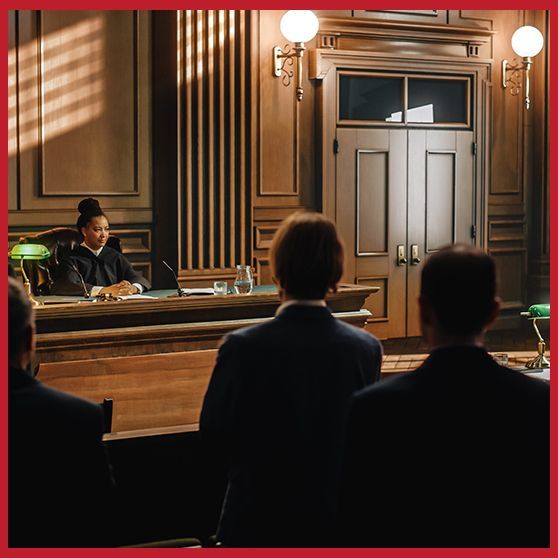The Value of Habeas Corpus in Legal Protection: Lawyer's Perspective
The Value of Habeas Corpus in Legal Protection: Lawyer's Perspective
Blog Article
Recognizing the Duty of a Post-Conviction Legal Representative in Looking For Justice After a Criminal Sentence
In the complicated landscape of post-conviction lawful procedures, the role of a post-conviction attorney is pivotal in navigating the path to justice after a criminal conviction. Past the confines of a trial, these lawyers take part in a complex strategy focused on discovering new proof, tough legal errors, and advocating for their customers' legal rights. The complexities of post-conviction work call for a mix of legal acumen, investigatory abilities, and tactical thinking to untangle the intricacies of a situation and pursue methods that may have been overlooked or underexplored. As the search of justice prolongs past the boundaries of initial process, the function of a post-conviction lawyer arises as a beacon of wish for those seeking to rectify oppressions and reclaim their civil liberties within the lawful system.
Post-Conviction Attorney's Investigative Work
Post-conviction lawyers participate in thorough investigatory work to reveal brand-new evidence, step-by-step errors, or misconduct that can possibly result in overturning a sentence. This investigative phase is critical in the post-conviction procedure as it aims to determine any forgotten information or lawful mistakes that may have affected the end result of the initial test. Post-conviction attorneys explore instance data, witness testimonies, and lawful documentation with a fine-tooth comb, looking for any disparities or irregularities that can be grounds for allure.
Through thorough investigation, post-conviction legal representatives aim to clarify potential oppressions that may have happened throughout the original test. They might carry out meetings, consult with professionals, and testimonial forensic evidence to develop a compelling situation for their customers. By scrutinizing every element of the lawful proceedings, post-conviction attorneys function relentlessly to uncover any type of factors that may have affected the judgment. Eventually, their investigative work plays a crucial duty in the search of justice and the prospective turnaround of wrongful convictions.
Crafting Appeals and Petitions
In the search of justice after a sentence, competent attorneys diligently craft allures and petitions to present compelling arguments for the reconsideration of legal decisions. Crafting appeals and petitions requires a deep understanding of the legal system, attention to detail, and tactical thinking. Post-conviction lawyers evaluate trial records, determine prospective errors or violations of rights, and develop legal arguments to challenge the sentence or sentence.
When crafting an allure, legal representatives concentrate on highlighting lawful errors that may have influenced the end result of the instance. They look into situation legislation, statutes, and lawful criteria to support their arguments. Petitions, on the various other hand, might include providing new proof that was not readily available during the trial or showing adjustments in the legislation that require a review of the sentence.
In addition, post-conviction attorneys should stick to rigorous procedural guidelines and deadlines when submitting charms and petitions. They have to provide their arguments plainly and persuasively to persuade the court to give alleviation to their clients. Via careful crafting of appeals and applications, post-conviction attorneys strive to safeguard justice for individuals that have been wrongfully founded guilty or unfairly punished.

Going After Post-Conviction Relief
Looking for relief after a sentence requires a critical and thorough approach by knowledgeable legal experts. Post-conviction relief includes a series of legal devices developed to test the validity of a conviction or sentence (arkansas federal lawyer). These avenues include submitting activities for a brand-new trial, pursuing appeals, looking for writs of habeas corpus, and offering recently found evidence. Post-conviction legal representatives play a crucial duty in browsing these complicated procedures, ensuring that all lawful alternatives are discovered to remedy injustices that may have occurred during the test or sentencing stage.
One typical kind of post-conviction relief is submitting a request for post-conviction alleviation, usually based on insurance claims of ineffective help of counsel, prosecutorial transgression, newly found proof, or constitutional infractions. These applications require a thorough analysis of the test record, legal study, and persuasive campaigning for to convince the court to give alleviation. Experienced post-conviction lawyers possess the abilities and knowledge needed to recognize practical lawful cases, conduct examinations, and existing compelling disagreements to safeguard relief for their clients. By carefully seeking post-conviction relief, these lawful specialists strive to remedy miscarriages of justice and maintain the concepts of fairness and due process in the criminal justice system (Attorney).
Making Use Of Forensic Proof
When testing a sentence or sentence, the critical application of forensic proof can be an why not look here effective device in post-conviction legal procedures. Forensic evidence encompasses a wide variety of clinical strategies made use of to check out crimes and establish facts in court. Post-conviction legal representatives can utilize forensic proof to test the credibility of convictions by presenting brand-new clinical findings that were not available during the initial test.

Taking Part In Sentence Alterations
Post-conviction legal representatives might explore the possibility of sentence adjustments as a lawful opportunity to attend to out of proportion or unjustified sentences passed on in criminal instances. Sentence alterations entail looking for modifications to the terms of an accused's sentence after a conviction has occurred. These modifications can consist of lowering the size of a sentence, modifying the sort of punishment imposed, or discovering different sentencing alternatives.
Post-conviction attorneys can go after sentence modifications through numerous lawful systems, such as filing activities for sentence decrease, appealing for caring release, or negotiating appeal offers for decreased sentences. They must carefully assess the scenarios of the case, assess the lawful grounds for looking for an adjustment, and present engaging disagreements to the court supporting the demand for a revised sentence.
Participating in sentence alterations requires a comprehensive understanding of criminal regulation, sentencing standards, and the certain procedures entailed in seeking post-conviction alleviation. Post-conviction attorneys play a vital duty in advocating for reasonable and just end results by challenging sentences that are unduly rough or do not line up with the concepts of justice.
Final Thought
To conclude, the function of a post-conviction legal representative is important in looking for justice after a criminal conviction. Via investigative job, crafting appeals and requests, seeking post-conviction relief, using forensic proof, and engaging in sentence alterations, these lawyers play an essential role in supporting for their customers and guaranteeing that their civil liberties are upheld within the criminal justice system. Their commitment and proficiency are necessary in navigating the complexities of post-conviction procedures and attaining a reasonable outcome for individuals dealing with criminal convictions.
Report this page